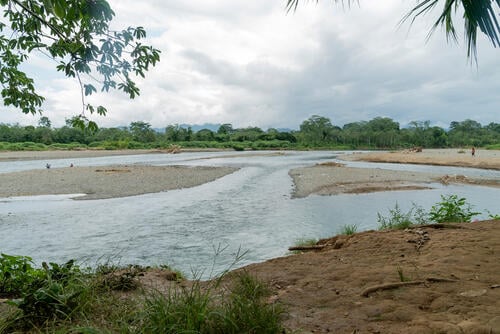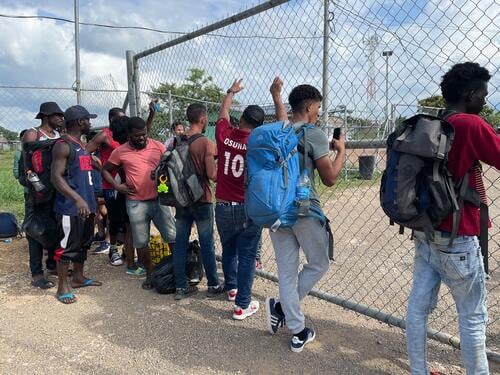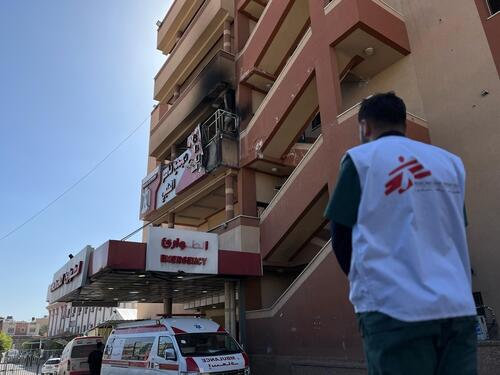“She was a 17-year-old girl. They had raped her on the way. But that wasn't the only trauma she experienced. The distance between her and her mother increased along the way. Everyone has a different pace and, being younger, she moved on ahead. So when we treated her in Bajo Chiquito, not only was she traumatised by the rape, but she also had the added anxiety of wondering about how her mother would be, if the same thing would happen to her mother, whether she would see her mother again alive.”
This is one of the cases that Guillermo Gironés, Médecins Sans Frontières (MSF) medical coordinator in Panama, remembers with greater clarity after three months of working at the Panama/Colombia border. Gironés outlines in this interview what he and MSF teams are seeing while working in our projects that serve people on the move once they have crossed the Darien jungle, between Panama and Colombia.
What surprised you about the projects when you arrived?
That the people were so internationally diverse. It is true that most of the migrants are Haitians who move from countries like Chile or Brazil, where they had migrated previously. But the reality of also meeting people from Pakistan or Democratic Republic of Congo (the other day I met some Congolese people, from Kinshasa, who had been living in Argentina), that surprised me.
Nor do you expect a humanitarian crisis such as this in a country like Panama. Above all, you don't expect the associated violence, the brutality encountered on the way, including both sexual and general violence that occurs during robberies.
The Darien remains a merciless journey. And that is why we are asking for safe routes for these people... migration is not a crime.Guillermo Gironés, medical coordinator in Panama
What were your duties as a medical coordinator?
I worked on the strategy for dealing with patients and negotiating with the authorities, so that the necessary support can be made available in Bajo Chiquito by the Panama Ministry of Health, with whom we work hand in hand. We have also had to do a lot outreach work with the authorities on what it means to be a victim of sexual violence, the need not to re-victimise people (by repeating questions, numerous interviews, etc.), the importance of confidentiality, the need for complaints to be voluntary, etc.
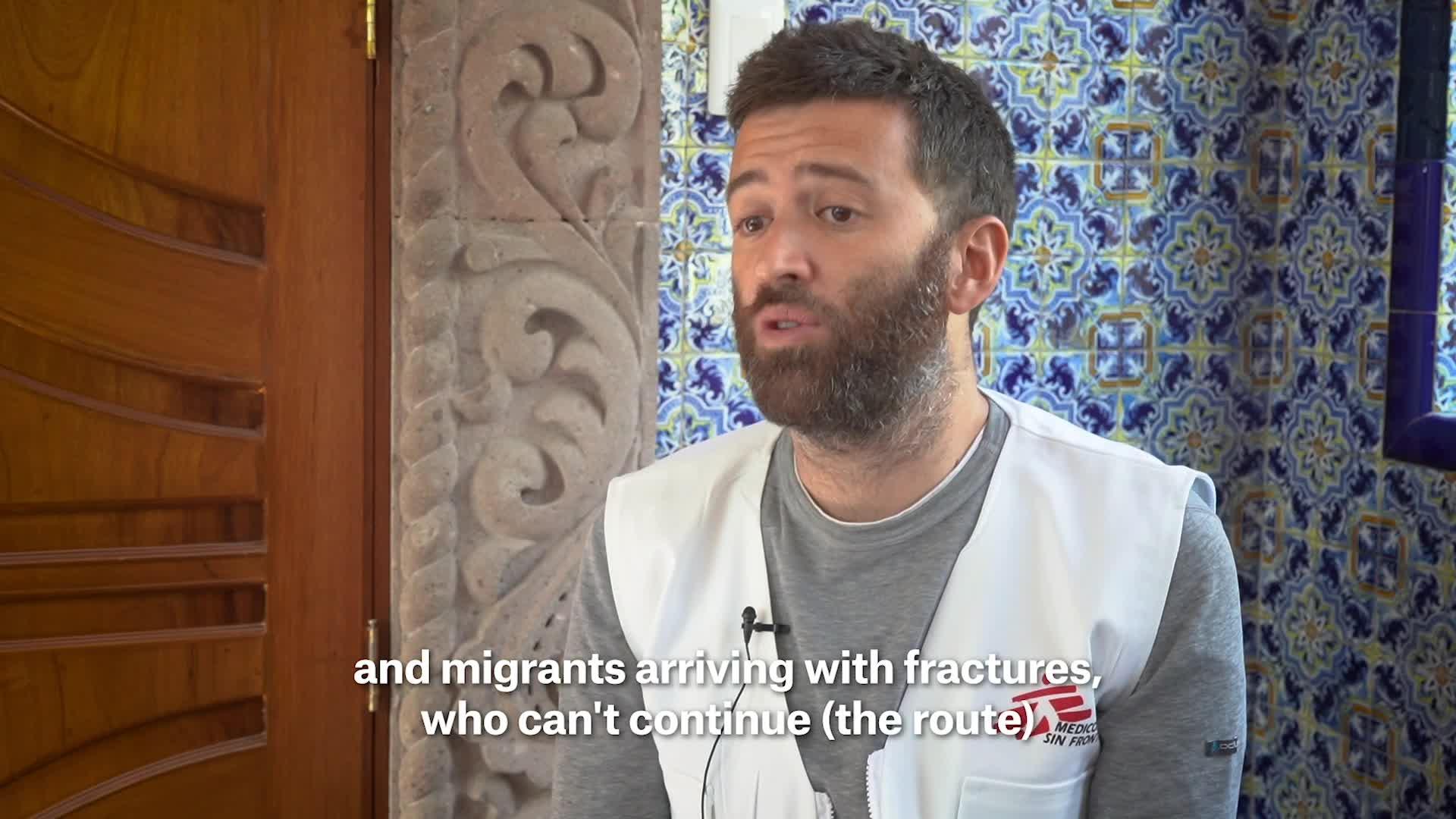
Medical conditions of migrants on the Darien Route
Teams have treated 288 cases of sexual violence since the project began at the end of April. Are they all reported to the authorities?
No, far from it. And we have to imagine that the cases that we have seen may only represent 25 per cent of those that actually occur. But migrants generally do not report instances of violence or rape, for two reasons: one, their criminalisation by states and their organisations makes them mistrust the authorities; and two, naturally, what they want is to move on as soon as possible. They want to reach their destination as soon as they can, and they will avoid getting involved in proceedings that could delay their trip and without the certainty of any outcome of the ensuing investigation.
How is a person who has been subjected to sexual violence cared for?
To avoid subjecting a person to numerous interviews and questions, as I mentioned earlier, we try to create a single comprehensive consultation, with the presence of a doctor and psychologists. In terms of medical care, if the event has occurred within the past 72 hours, we offer treatment for the prevention of sexually transmitted diseases, HIV and pregnancy. We also treat any pain they may have from being assaulted and beaten up. Nearly 90 per cent of those we attend to also receive counselling, on a voluntary basis, which can take up to an hour.
It can also be hard on our teams; imagine the emotional burden for the psychologist, who also has to treat seven or eight cases in a single day. All cases are terrible, appalling, unacceptable.
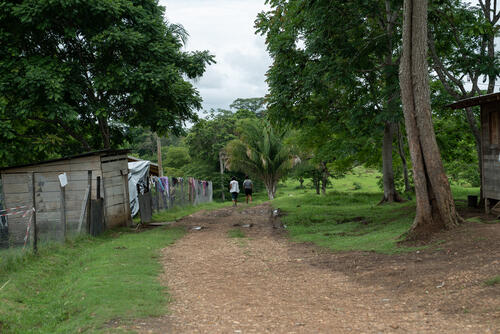
And the number of sexual assaults is not improving, is it?
No. For a few weeks between September and October, the numbers fell, with greater activity on all fronts by the authorities (military, attorney general, etc). But criminal groups have returned. We have had 18 cases of sexual assaults in the last week; overwhelming numbers. Clearly it can be stopped – it has been proven – but appropriate measures need to be taken once again to put an end to this.
What illnesses or conditions do you see the most?
The most common conditions our teams see are skin lesions, respiratory infections and gastrointestinal disorders, that arise from the dangers associated with a five-day route through the jungle, where there is also an enormous amount of violence.
The Darien has three dangers: first, violence. Second, the rivers, with flash floods and enormous currents. These are difficult to fight for a person who has spent five exhausting days walking through a jungle that is torturous to cross. Just now, a colleague of mine was telling me about a woman that she was treating who saw the river rise and wash away seven people from her group.
Third, there are the ascents and descents on slippery terrain, as the jungle is very uneven. Falls occur, some of which are fatal, and the migrants continue to talk of injured people who have to be left to their fate and abandoned in the jungle, possibly left for dead if they cannot be reached by rescue attempts.
In recent months, the Bajo Chiquito community has implemented a fee-paying canoe service that shortens the crossing of the final section by two days. That provides a great deal of relief; we no longer see people emerging from the Darien with their feet so ravaged by the humidity, burned by the friction of water and sand, terribly swollen.
Still, the Darien remains a merciless journey. And that is why we are asking for safe routes for these people, largely made up of family units with children. Migration is not a crime.



